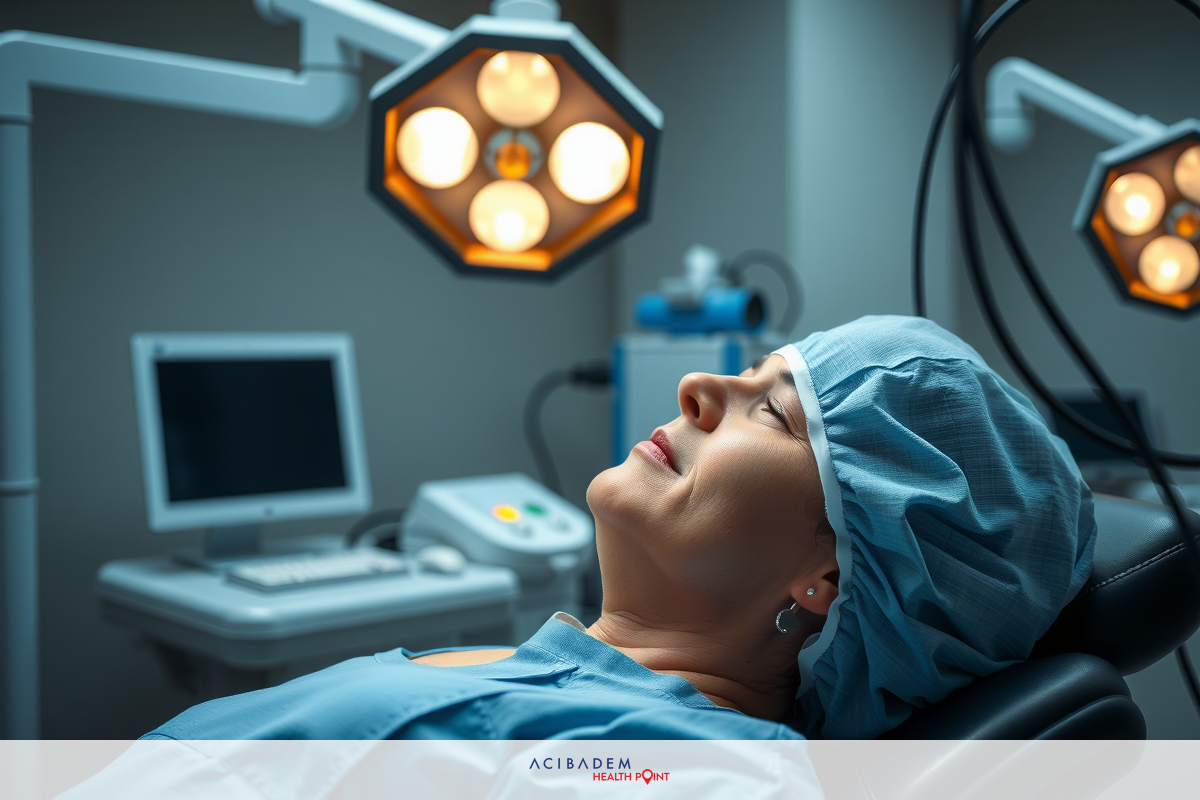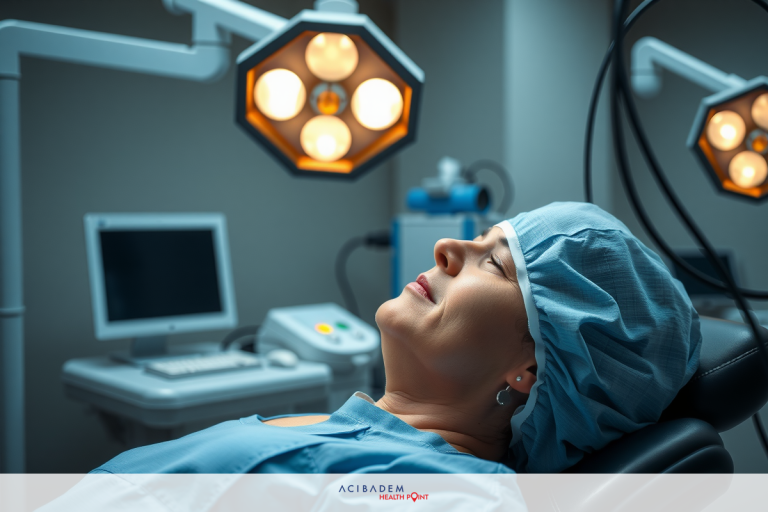Is Laser Eye Surgery Done While Awake?
Is Laser Eye Surgery Done While Awake? Laser eye surgery, a marvel of modern medicine, has revolutionized the field of ophthalmology. The procedure, performed with precision and care, offers a promising solution to refractive errors. But here’s an intriguing question – is it carried out while patients are awake?
In stark contrast to many surgical interventions that require general anesthesia for patient comfort and safety, laser eye surgery often employs local or topical anesthesia. This approach allows patients to stay conscious throughout the procedure without experiencing discomfort or pain. This fact might raise eyebrows, yet it reflects just another fascinating aspect of this advanced medical practice.
The advantages offered by being awake during this operation extend beyond mere curiosity or novelty. A faster recovery time coupled with reduced risks associated with general anesthesia makes this method appealing for both doctors and patients alike. Combining these benefits with the transformative potential that laser eye surgery holds for vision correction paints an impressive picture indeed!
What is Laser Eye Surgery?
Laser eye surgery, a medical procedure that employs lasers to reshape the cornea and correct refractive errors, stands as a testament to the advancements in ophthalmology. This surgical intervention has emerged as an effective alternative for people who rely on glasses or contact lenses. By modifying the shape of the cornea – which plays a key role in focusing light onto the retina – laser eye surgery can improve vision significantly.
The term ‘laser eye surgery’ encompasses several procedures such as LASIK (Laser-Assisted In Situ
Keratomileusis), PRK (Photorefractive Keratectomy), and LASEK (Laser Assisted Sub-Epithelial Keratomileusis). Despite their different approaches, these surgeries share common goals: correction of myopia (nearsightedness), hypermetropia (farsightedness), and astigmatism. Each type of laser eye surgery involves creating a thin flap on the cornea’s surface or removing its outer layer before reshaping it with precise laser pulses.
Interestingly, unlike many other forms of surgeries requiring general anesthesia, patients stay awake during these procedures – yes, you read that correctly – Fear not though; topical anesthesia is administered to ensure patient comfort throughout this entire process. Staying awake allows individuals undergoing this form of corrective operation an active role in their treatment journey while simultaneously reducing risks associated with deeper levels of sedation. Anesthetic drops numb your eyes making them insensitive to pain but aware enough for instructions from your surgeon.
Thus unfolds one intriguing aspect about laser eye surgery: It harmoniously blends advanced technology with detailed understanding about human ocular anatomy to deliver transformative results often while patients stay conscious! The ability to potentially bid farewell to glasses or contact lenses within hours post-procedure indeed makes this branch of ophthalmology incredibly appealing.
Anesthesia Options for Laser Eye Surgery
Laser eye surgery, despite its invasive nature, does not necessitate the use of general anesthesia. Instead, it typically employs local or topical anesthetics to ensure patient comfort throughout the procedure. This type of anesthesia has a profound impact on the overall experience and recovery process following laser eye surgeries such as LASIK, PRK or LASEK.
Topical anesthesia is commonly administered through anesthetic drops that numb the eyes before surgery. These drops are effective in eliminating discomfort during the procedure while allowing patients to remain awake and responsive. Thus, they provide dual benefits – maintaining patient comfort without inducing sleepiness or

unconsciousness often associated with other forms of anesthesia. It’s worth noting that these anesthetic drops don’t impede your ability to see changes in light intensity; hence you can still follow your surgeon’s instructions which may include focusing on a specific light source during operation.
Another notable benefit of avoiding general anesthesia in laser eye surgery is quicker post-procedure recuperation times since there’s no need for prolonged emergence from sedatives typically used in more extensive surgical operations. You won’t face grogginess or disorientation after undergoing this visioncorrecting intervention! Additionally, potential side effects related to systemic analgesics – like respiratory complications – become negligible when localized numbing agents take center stage.
Benefits of Awake Laser Eye Surgery
In the realm of laser eye surgery, remaining awake during the procedure isn’t just a curious fact but has tangible benefits. The advantages span across patient comfort, safety, and recovery time – factors that significantly contribute to the overall success and satisfaction associated with these vision-correcting interventions.
One primary benefit is reduced risk. General anesthesia carries inherent risks including allergic reactions or breathing problems. However, with topical anesthetics used in laser eye surgeries like LASIK, PRK or LASEK, patients are spared from potential complications tied to general sedation. This also diminishes postoperative side effects such as nausea or grogginess common after more invasive procedures requiring fullbody anesthesia.
Being awake during surgery also contributes positively towards enhancing patient involvement and control over their treatment journey. Surgeons often instruct patients to focus on a specific light source while they’re operating which helps improve precision by stabilizing the eye’s position during critical moments of corneal reshaping; this active participation would be impossible were one under deeper levels of sedation!
Moreover, avoiding general anesthesia facilitates faster recovery times as emergence from local anesthetic agents happens rapidly compared to systemic ones. Patients can usually leave shortly after their procedure without experiencing disorientation due to residual effects from heavy sedatives! They can expect minimal disruption in their daily routine considering there’s no ‘hangover effect’ following localized numbing practices employed in these operations.
Thus not only does being conscious provide reassurance amidst otherwise daunting surgical surroundings but it enhances outcomes too! It’s indeed heartening how medicine straddles human psychology alongside advanced technology offering us solutions that optimize both physical results and emotional experiences.
Frequently Asked Questions
Q: What is Laser Eye Surgery? A: In the field of ophthalmology, laser eye surgery refers to a collection of procedures such as LASIK, PRK or LASEK designed to correct refractive errors. These surgeries utilize precise laser pulses to reshape the cornea – which facilitates light focusing onto retina – thereby improving vision.
Q: Are patients awake during Laser Eye Surgery? A: Yes! Unlike many surgical operations requiring general anesthesia, patients typically remain awake during laser eye surgeries. Anesthetic drops are used to numb the eyes and prevent discomfort while ensuring patient responsiveness throughout the procedure.
Q: Why is it beneficial for patients to stay conscious during Laser Eye Surgery? A: Staying awake reduces risks associated with general anesthesia like allergic reactions or breathing problems. It allows for quicker post-operative recovery since there’s no need for emergence from deeper levels of sedation. Additionally, being conscious enhances patient involvement by enabling them follow surgeon’s instructions such as maintaining focus on specific light sources during operation.
Q: How does local anesthesia contribute towards patient comfort in these procedures? A: Local anesthetics like numbing drops eliminate discomfort while allowing patients be responsive and aware; they do not induce unconsciousness often associated with other forms of analgesics. Also, side effects related systemic sedatives become negligible when localized pain management strategies are employed.
The answers provided above serve informational purposes only and should not be construed as medical advice.








